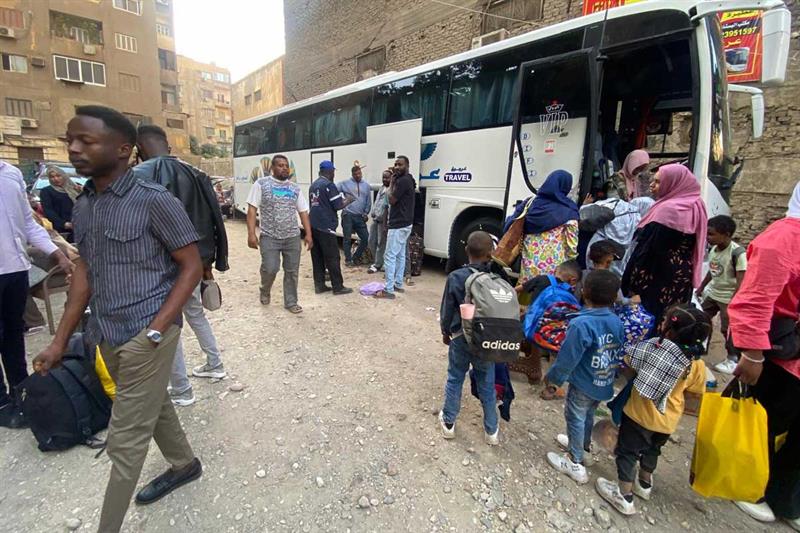At Cairo’s Mohamed Naguib metro station, Sudanese families gathered this week to begin their journey back home, boarding buses headed south toward Abu Simbel and onward to Sudan. For many, the return is filled with cautious optimism, despite the uncertainty that awaits them.
Among the passengers was a 29-year-old woman who, after months of displacement, hoped to reclaim her old life in Sudan. “I want to return to my work,” she said quietly, as she joined dozens of others leaving behind months spent in Egypt after fleeing war.
The departures come against the backdrop of Sudan’s devastating civil conflict, which erupted in April 2023 between the Sudanese army and the Rapid Support Forces, resulting in what the United Nations has described as the world’s worst humanitarian crisis. The war has displaced more than 13 million people, with over 3.5 million seeking refuge in neighboring countries like Egypt.
For those boarding buses in Cairo, the decision to return home was not made lightly. Many spoke of exhaustion from months of displacement and financial hardship, relying heavily on support from relatives abroad. Ticket prices for the arduous journey vary widely, with some paying up to EGP 5,000 per person, covering only part of the trip.
The first leg of their route leads to Abu Simbel, where Egyptian soldiers process travelers before they cross Lake Nasser into Sudan’s Wadi Halfa. Despite the logistical challenges, many families were determined to reunite with relatives and rebuild their lives, even in a country still grappling with widespread destruction.
A 29-year-old man, returning with his family to Omdurman after months seeking medical treatment in Egypt, expressed cautious hope, noting that media reports indicated improving security in parts of Khartoum.
Yet for many, the future remains precarious. Infrastructure across Sudan lies in ruins, healthcare services are largely inaccessible, and famine continues to grip parts of the country. One returning artist described the harsh reality: “The hardest thing anyone can face after war is coming home and finding no home at all.”
Despite the hardships, gratitude toward Egypt runs deep among the Sudanese community. Videos circulating online show Sudanese refugees thanking Egyptians for their hospitality, with emotional farewells between Egyptians and Sudanese friends drawing widespread attention.
Still, not all refugees are ready to return. Some, like 60-year-old Ibrahim Abdelgabar, insist they will not go back until the fighting ends entirely. Others, like Om Mowafaq, who fled with her children, have built new lives in Egypt, where rising living costs and lingering trauma add new layers to their struggles.
Egypt has absorbed a large share of Sudan’s displaced population, now estimated at nearly four million across borders. But with growing pressures on housing and education systems, Egyptian officials have called for urgent international support to sustain assistance efforts.
As buses pulled away from the station, loaded with hopes and anxieties, many Sudanese families faced an uncertain future—but also carried with them the enduring resilience of those determined to rebuild their lives.



